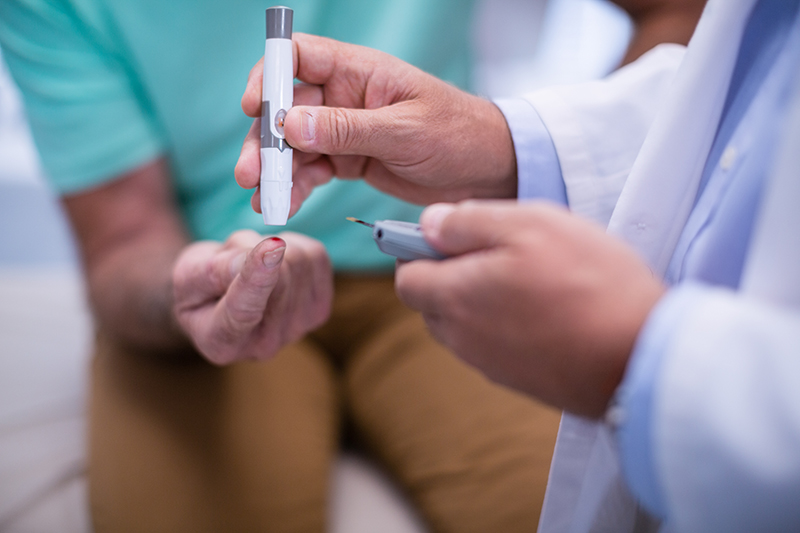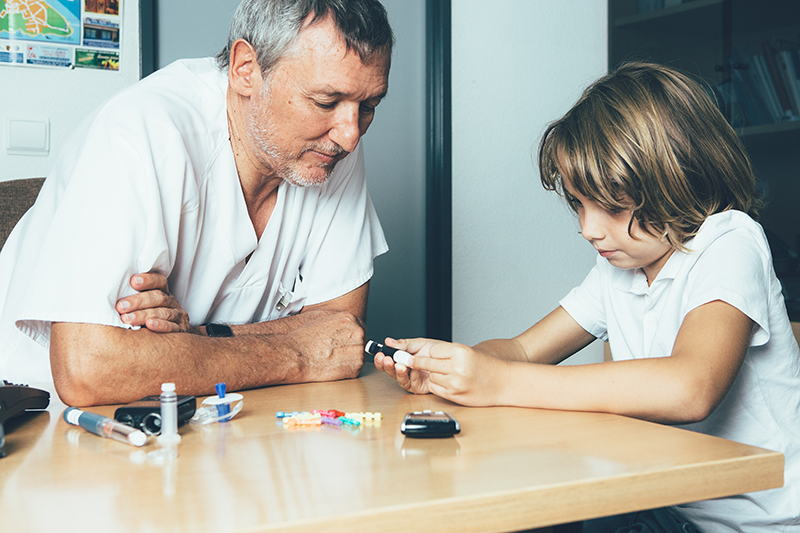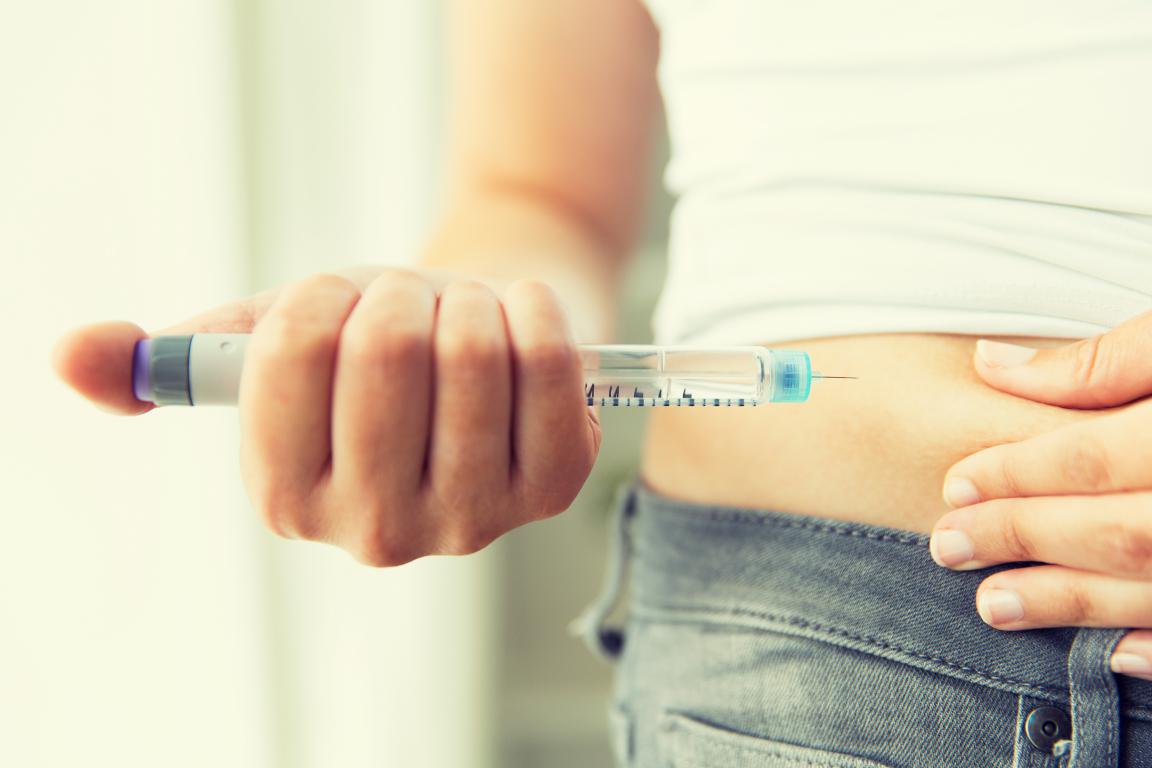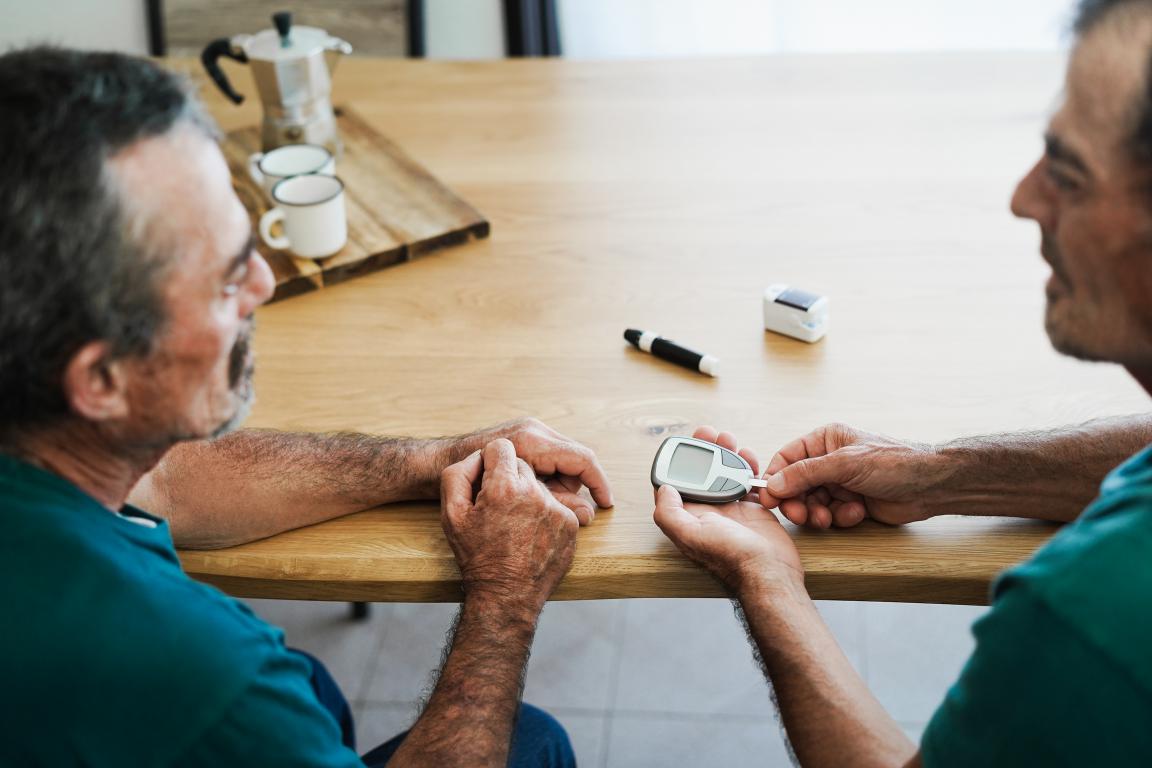Bio-degradable cards
Every card imaginable!
|
Bio-degradable cards Every card imaginable! Diabetes Support Guide for Everyday Life
DisclaimerThis guide is for informational purposes only and is not a substitute for professional medical advice. Readers should always consult a qualified healthcare provider for personal concerns. Dated: December 2025. Table of ContentsUnderstanding DiabetesIf you've recently heard the word "diabetes" in relation to yourself or someone close to you, it's natural to have questions swirling in your mind. This condition touches the lives of over 4.3 million people in the UK, according to recent NHS figures, and while it demands daily attention, countless individuals manage it successfully without letting it overshadow their routines. The key is building a solid foundation of understanding, which can ease those initial worries and empower you to take practical steps forward. We'll break this down gently, explaining the basics in a way that's straightforward and supportive, so you can feel more at ease as you read on. What Exactly is Diabetes?Diabetes occurs when your body struggles to regulate blood sugar levels, also known as glucose, which serves as the primary fuel for your cells, muscles, and organs. Normally, after you eat, your blood sugar rises, and your pancreas releases insulin—a hormone that helps shuttle glucose into cells for energy. But in diabetes, this system falters, leading to excess glucose lingering in the bloodstream, which over time can contribute to complications if not addressed. It's reassuring to know that with monitoring and adjustments, many people keep their levels stable and prevent issues from arising. This isn't a rare or mysterious ailment; it's one of the most common long-term health conditions worldwide. Factors like family history, age, and daily habits play roles in its development, but it's not something you "catch" like a cold—it's more about how your body's internal processes adapt or don't. By recognising early signs and working with healthcare teams, you can often turn the tide, making diabetes something you live with rather than something that defines you. How Insulin Fits into the PictureInsulin is produced by a gland called the pancreas, located behind your stomach, and it functions much like a doorkeeper for your cells. When insulin is present in the right amounts, it allows glucose to enter cells efficiently, keeping blood sugar balanced after meals or snacks. In diabetes, however, either the pancreas doesn't produce enough insulin, or the body's cells become resistant to its effects, causing glucose to build up and potentially leading to fatigue or other symptoms. The good news is that modern treatments, including medications and lifestyle tweaks, can mimic or boost insulin's role, helping restore that balance for most people. Understanding this hormone's role can demystify why regular check-ups matter—it's about ensuring your body's natural mechanisms are supported. For parents caring for a child with diabetes, this knowledge can be particularly comforting, as it highlights how targeted interventions, like insulin therapy, have advanced dramatically in recent years, allowing kids to participate fully in school and play without constant disruption. Why Diabetes Matters for Everyday Health
As you absorb this information, remember that diabetes is highly individual—what works for one person might differ for another, but the common thread is that support is readily available. The NHS offers structured education courses like DESMOND for type 2 diabetes or DAFNE for type 1, which equip you with practical tools in a group setting. These programmes have helped thousands feel more in control, often leading to better health outcomes and a reduced sense of isolation. Moving forward, we'll delve into the specific types of diabetes, but for now, take a moment to appreciate that you're already taking a positive step by seeking out this knowledge. 
Types and Causes of DiabetesHearing that you or a loved one has diabetes can bring up a lot of questions, especially about what type it is and why it happened. It's completely understandable to feel uncertain at first—many people do—but getting clear on the differences between the main types can help you feel more prepared for the conversations with your GP or diabetes team. In the UK, around 4.6 million people are living with a diagnosed diabetes, according to the latest figures from Diabetes UK in early 2025, with type 2 making up about 90% of cases, type 1 around 8%, and other types the remaining 2%. The good news is that whatever the type, NHS support and modern management options mean most people go on to live full, active lives. The Main Types at a GlanceDiabetes isn't one single condition; the different types affect how your body produces or uses insulin in distinct ways. Knowing the type guides everything from daily management to long-term planning. Type 1 Diabetes: This accounts for about 8% of all diabetes cases in the UK, affecting roughly 370,000 people. It most often starts in childhood or the teens, though it can appear at any age. The body's immune system mistakenly attacks the insulin-producing cells in the pancreas, so little or no insulin is made from the outset. Daily insulin injections or an insulin pump are essential for survival, alongside careful monitoring of blood sugar levels. Advances like hybrid closed-loop systems (sometimes called an "artificial pancreas") are now available on the NHS for many, making management smoother and reducing the risk of lows or highs. Type 2 Diabetes: By far the most common, representing around 90% of diagnoses. It tends to develop in adults over 40, but increasingly appears earlier due to rising obesity rates. Here, the body either becomes resistant to insulin or the pancreas gradually produces less of it. Lifestyle factors play a big role, and many people achieve good control—or even remission—through healthier eating, more activity, and weight management if needed. Medications like tablets are common at first, with insulin added later if required. Gestational Diabetes: This affects pregnancy, developing when hormonal changes make the body less responsive to insulin. It usually resolves after birth but signals a higher future risk of type 2 for both mother and child. In the UK, it's estimated to affect around 1 in 23 pregnancies, with screening offered to those at higher risk through the NHS. What Causes Each Type?The causes vary, blending genetics, environment, and sometimes factors we can't control. While type 1 can't be prevented, type 2 often can be delayed or avoided with practical steps. Type 1 Diabetes This is an autoimmune condition—not linked to lifestyle choices like diet or exercise. Genetic predisposition plays a part, and possible triggers include certain viral infections in early life, though the exact cause isn't fully understood. It's not something parents or individuals could have prevented, which can be reassuring for families coming to terms with a new diagnosis. Management focuses on replacing the missing insulin, and research into immunotherapies continues to offer hope for future prevention or delay. Type 2 Diabetes A mix of genetics and lifestyle influences here. Key risk factors include:
The reassuring part? Programmes like the NHS Diabetes Prevention Programme help those at high risk make changes that cut the chance of developing type 2 by up to a third. Gestational Diabetes Pregnancy hormones naturally make cells less sensitive to insulin to prioritise the baby's growth. In some women, the pancreas can't keep up with the extra demand. Risks are higher if you're overweight before pregnancy, have a family history of diabetes, or are from certain ethnic backgrounds. It often resolves post-birth, but lifestyle tweaks during pregnancy—balanced meals, gentle exercise—plus monitoring keep things steady for mum and baby. Rarer Forms of DiabetesAbout 2% of cases fall outside the main three types. These include:
If your symptoms or family history don't quite fit type 1 or 2, mention it to your doctor—specialist referral for tests can clarify things. Whatever type you're dealing with, the causes aren't about blame; they're about understanding so you can focus on what helps now. The NHS provides tailored education courses and ongoing support to build confidence in day-to-day management. Many people find that once routines settle, diabetes becomes just one part of a busy, enjoyable life. In the next section, we'll look at recognising symptoms and how diagnosis works. 
Symptoms and DiagnosisIf you're noticing changes in how you or your child feels, or perhaps nothing obvious at all, it's completely understandable to wonder if diabetes could be the cause. Many people in the UK are diagnosed during routine checks without any clear warning signs, which is why early awareness matters so much. Spotting potential symptoms promptly and getting a simple test can lead to quicker support from your NHS team, helping to keep things under control and reduce any longer-term worries. The reassuring part is that diagnosis is straightforward, and once confirmed, tailored guidance from healthcare professionals makes a big difference right from the start. How Symptoms Differ by TypeSymptoms of high blood sugar stem from the body trying to get rid of excess glucose, but they can vary depending on the type of diabetes and how quickly it develops. Type 1 Diabetes Symptoms: These often appear suddenly, over days or weeks, especially in children and young people, which can make them easier to spot but also more urgent. Common signs include extreme thirst (polydipsia), frequent trips to the toilet (polyuria, particularly at night), overwhelming tiredness even after rest, and unexplained weight loss despite normal eating—these are often remembered as the "4 Ts": Toilet, Thirsty, Tired, Thinner. In children, look out for renewed bedwetting, irritability, or a fruity-smelling breath if levels get very high. Without prompt treatment, this can lead to a serious but treatable condition called diabetic ketoacidosis (DKA), so if several symptoms hit quickly, contact your GP or NHS 111 straight away for advice. Type 2 Diabetes Symptoms: These tend to build gradually over months or years, and sometimes there are no noticeable signs at all—up to a third of people with type 2 are diagnosed without symptoms during health checks. When they do appear, you might feel unusually thirsty, need to urinate more often (especially nocturnally), experience persistent fatigue, notice blurred vision, or have slow-healing cuts and recurring infections like thrush. Blurred vision happens because high sugar levels affect fluid in the eye lenses, but it usually improves with better control. For parents or those noticing subtle changes in older family members, these can be mistaken for ageing or stress, but mentioning them to a GP can uncover the cause early. Gestational Diabetes Symptoms: This form during pregnancy rarely causes obvious symptoms, which is why the NHS routinely screens those at higher risk. If blood sugar rises significantly, you might feel increased thirst, a dry mouth, or need to pee more, but these overlap with normal pregnancy feelings. Screening catches most cases, ensuring support for both mum and baby without complications. When to Seek HelpIt's normal to hesitate about seeing a doctor for what might seem like minor issues, but acting sooner rather than later brings clarity and peace of mind. Contact your GP if you or your child experience several of these signs together, or if there's a family history or other risk factors like being overweight. For sudden, severe symptoms—especially in children—don't wait; call NHS 111 or go to A&E if needed. The NHS also offers free Health Checks for those aged 40-74, which include diabetes risk assessment, and tools like Diabetes UK's online Know Your Risk quiz can help you gauge if a check-up is worthwhile. The Diagnosis ProcessGetting diagnosed usually starts with a chat at your GP surgery, where they'll ask about symptoms, family history, and risks before arranging tests—it's all straightforward and supportive. Common Tests ExplainedHbA1c Blood Test: This is the go-to for most adults, measuring average blood sugar over the past 2-3 months. An HbA1c of 48 mmol/mol (6.5%) or higher confirms diabetes, while 42-47 mmol/mol indicates higher risk (sometimes called pre-diabetes or non-diabetic hyperglycaemia). It's a simple blood sample, no fasting needed, and reliable for type 2 or gestational screening. Results guide whether further tests or immediate support is required, and it's repeated if needed to confirm. Fasting Plasma Glucose or Random Glucose Test: Sometimes used alongside or instead, especially if HbA1c isn't suitable (for example, in certain health conditions). A fasting level of 7.0 mmol/L or above, or random level of 11.1 mmol/L or above with symptoms, points to diabetes. Oral Glucose Tolerance Test (OGTT): Often for gestational diabetes or confirmation, involving drinking a sugary solution and checking blood sugar after two hours. In pregnancy, it's offered around 24-28 weeks if risks like previous large babies or family history apply. Once diagnosed, you'll likely be referred to a specialist diabetes team for education, planning, and ongoing NHS support—many find this structured help transforms initial anxiety into confidence. What About Pre-Diabetes?If tests show elevated but not diabetic levels (HbA1c 42-47 mmol/mol), you're at increased risk, but this is a window for positive change. The Healthier You NHS Diabetes Prevention Programme, available across England (with similar support elsewhere in the UK), offers free coaching on eating well, activity, and weight management if needed. Evidence shows it can cut the chance of developing type 2 by over a third, empowering many to keep levels stable long-term. Receiving a diabetes diagnosis can stir up a range of feelings—relief at having answers, concern about changes ahead—but remember, millions manage it successfully every day with NHS backing. Early detection means better outcomes, and the next sections will cover practical steps for living well with it. You're already taking a great step by learning more. 
Living with Diabetes: Management and LifestyleOnce you've been diagnosed with diabetes, the goal is to weave effective care into your everyday routine in a way that feels manageable and sustainable. It's completely understandable to feel a bit daunted at first—many people do—but this isn't about turning your life upside down overnight. Instead, it's about making steady, practical changes that fit around you and your family. Your diabetes healthcare team, including specialist nurses, GPs, consultants, dietitians, and podiatrists, will work with you to create a personalised plan. They'll support you with regular reviews to adjust things as needed, because what works today might evolve over time. Plenty of people find that, with practice, managing diabetes becomes as routine as any other daily habit, giving them more freedom rather than less. Getting to Grips with Monitoring and TreatmentKeeping an eye on your blood glucose levels is at the heart of day-to-day management, and modern tools make this easier than ever. Most people use either a traditional finger-prick meter or a continuous glucose monitor (CGM), which is a small sensor worn on the skin that tracks levels in real time and sends readings to your phone or a dedicated device. Type 1 DiabetesFor type 1 diabetes, insulin is essential because the body no longer produces it. You'll likely use multiple daily injections or an insulin pump, adjusting doses based on what you eat, your activity levels, and other factors like illness or stress. Carb counting—learning how different foods affect your levels—helps you match insulin accurately, and many find this gives them flexibility to enjoy a wide variety of meals without strict restrictions. Type 2 DiabetesFor type 2 diabetes, treatment often starts with lifestyle changes and tablets, such as metformin, which helps your body use insulin more effectively. If blood glucose levels remain high over time, you might add other medications or move to insulin. Some people with type 2 achieve remission—where levels return to normal without medication—through sustained weight loss and healthier habits, and NHS programmes can support this journey. Spotting and handling highs and lows is key to feeling in control.
Structured education courses are highly recommended by the NHS and can make a real difference in how you feel about managing diabetes.
Eating Well with DiabetesThere's no need for a "diabetes diet" full of special foods—healthy eating for diabetes is simply balanced, enjoyable eating that anyone can benefit from. The focus is on consistency and variety to keep blood glucose steady while supporting overall wellbeing. Key principles include:
Staying ActivePhysical activity is one of the most powerful tools for managing diabetes, as it helps your muscles use glucose more efficiently, often lowering blood glucose levels naturally while boosting mood, energy, and heart health.
Looking After Long-Term HealthGood day-to-day management significantly reduces the risk of complications, but regular NHS checks ensure any issues are caught early and handled promptly. These include annual reviews for:
If you notice changes, like tingling in feet or blurred vision, contact your team straight away—early action often prevents progression. With modern care, most people live full, active lives without major issues. Fitting Diabetes into Everyday ScenariosDiabetes touches many parts of life, but planning ahead keeps it from taking over.
It's normal to have tougher days—diabetes doesn't define you, and support is always available. With the right tools, knowledge, and team behind you, living well with diabetes is absolutely achievable. 
Help and Further ResourcesLiving with diabetes can feel more manageable when you have the right support around you. It's completely normal to want to connect with others who truly get what you're going through, whether that's for practical advice, a listening ear, or just knowing you're not alone. The UK has some fantastic networks and services that can make a real difference, offering everything from expert guidance to peer experiences that help turn challenges into everyday routines. Carrying Medical IdentificationMany people with diabetes find it reassuring to carry a medical ID card or bracelet that shares key details—like your diagnosis, medications, and emergency contacts—in case you ever need help when you can't speak for yourself. This can be especially useful during a severe hypo or any unexpected situation. We have a range of medical ID cards designed specifically for people living with diabetes, and we recommend taking a look to see which one might suit you best. They provide clear, concise information that healthcare professionals can use quickly. Key Organisations and Charities
NHS and Healthcare SupportYour NHS diabetes team is there for ongoing care, but there are additional services that can complement this.
Online and Peer CommunitiesSometimes the quickest support comes from online spaces where people share day-to-day experiences.
Connecting with even one of these resources can bring new ideas, reassurance, and a stronger sense of control. Whether you prefer face-to-face groups, phone support, or online chats, there's something out there to fit your preferences—and reaching out is often the first step towards feeling more confident in your diabetes journey. 
Frequently Asked QuestionsHere are answers to some of the most common questions about diabetes. These are based on current NHS and Diabetes UK guidance, explained in straightforward terms. Everyone's situation is different, so always discuss things with your healthcare team for personalised advice. What is the difference between type 1 and type 2 diabetes?
Both types involve monitoring blood glucose and can have similar long-term effects if not managed well, but good care allows most people to lead full lives. Can diabetes be cured?There is currently no cure for type 1 or type 2 diabetes. Type 1 requires lifelong insulin treatment, though technology and research are constantly improving options. For type 2, some people achieve remission—where blood glucose returns to normal levels without medication—through sustained weight loss and lifestyle changes, especially soon after diagnosis. Gestational diabetes, which occurs during pregnancy, usually resolves after the baby is born, but it does raise the future risk of type 2. Ongoing research brings hope, but the main focus right now is on effective management to keep you healthy and active. How often should I check my blood sugar?It varies depending on your type of diabetes, treatment, and individual plan. People with type 1 often check 4–10 times a day to guide insulin doses, while those with type 2 on diet or tablets might check less frequently, perhaps before meals or a few times a week once levels are stable. Continuous glucose monitors (CGMs), available on the NHS for many, provide ongoing readings without as many finger pricks. Your diabetes team will recommend a routine that works for you and adjust it as needed. What foods should I avoid with diabetes?No foods need to be completely avoided—it's more about balance and making informed choices.
Is exercise safe if I have diabetes?Yes, exercise is safe and highly recommended for most people with diabetes. It helps lower blood glucose naturally, improves insulin sensitivity, and supports overall health. Start gently with activities you enjoy, like walking or swimming, and aim for the guideline of 150 minutes a week. Check your glucose before and after to avoid lows, stay hydrated, and carry a snack. If you have any complications, your doctor can suggest suitable options. What are the long-term risks of diabetes?If blood glucose, blood pressure, and cholesterol stay high over time, diabetes can increase risks of:
However, regular NHS checks and good daily management greatly lower these risks. Most people with well-controlled diabetes live long, healthy lives without serious problems. Can children outgrow diabetes?Children with type 1 diabetes cannot outgrow it, as it's a lifelong condition requiring insulin. Some children diagnosed with type 2 may see significant improvement or remission through lifestyle changes, particularly if addressed early. With modern care, children with any type of diabetes can grow up thriving. How does diabetes affect pregnancy?Diabetes during pregnancy requires closer monitoring to keep blood glucose stable for both mother and baby. This often involves more checks and possibly insulin adjustments, with support from specialist teams. Planning ahead and good control lead to healthy outcomes for most women. What if I feel overwhelmed by diabetes?Feeling overwhelmed is very common, and it's important to recognise that. Talk to your GP or diabetes nurse—they can offer support or refer you for counselling. Joining a support group or attending education courses like DESMOND or DAFNE can also help by providing practical strategies and a sense of community. Do I need to tell my employer about my diabetes?You are not legally required to disclose it, but many people do so they can access support, such as breaks for checks or help during a hypo. Diabetes UK provides helpful guidance on workplace rights and how to handle these conversations. How can I prevent type 2 diabetes?Maintaining a healthy weight, eating balanced meals, staying active, and avoiding smoking all help reduce the risk. If you're identified as higher risk—perhaps through a blood test—programmes like the NHS Diabetes Prevention Programme offer free support with group sessions on lifestyle changes. What is pre-diabetes?Pre-diabetes means blood glucose levels are higher than normal but not yet in the diabetes range. It increases the chance of developing type 2, but many people reverse it through healthier eating, more activity, and weight management if needed. Your GP can explain your results and guide next steps. 
ConclusionThank you for reading this Diabetes Support Guide for Everyday Life. We hope it has given you clear, practical information and a sense that managing diabetes is absolutely achievable. Diabetes asks for some ongoing attention, but it doesn't stop you from living the life you want. Millions of people in the UK are doing just that—working, raising families, travelling, and enjoying hobbies—with diabetes simply part of the picture. By keeping an eye on your blood glucose, taking your treatment as agreed with your team, eating balanced meals, and staying active in ways you enjoy, you can feel well day to day and lower the chances of longer-term problems. Modern tools like continuous glucose monitors, reliable insulins, and NHS support make things easier than ever before. Your healthcare team is there to guide you every step of the way, adjusting your plan as life changes. If you're newly diagnosed or supporting someone who is, remember that it gets easier with time. Most people find their confidence grows as the routines become familiar. You're not alone in this. Reach out to your GP or diabetes nurse whenever you need to, and consider connecting with Diabetes UK for extra advice and community support. Looking after your diabetes is one of the best ways to look after yourself—and it leaves plenty of space for everything else that matters to you. This information is accurate as of December 2025. Medical guidance can change, so always check with a healthcare professional for the latest advice.
© 2024 The Card Project Uk Ltd
VAT: 453 2087 06
|